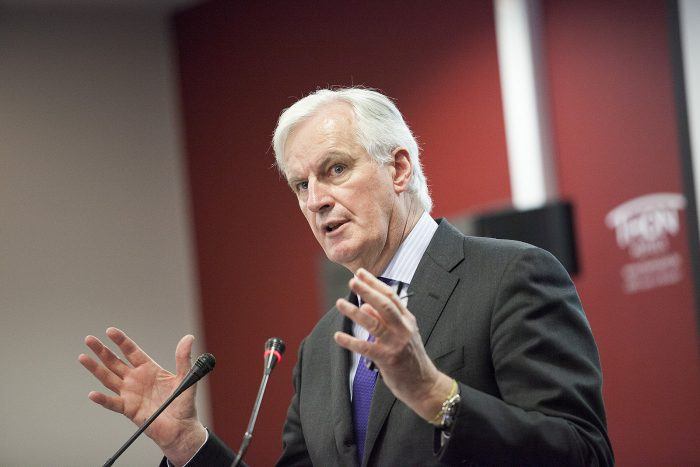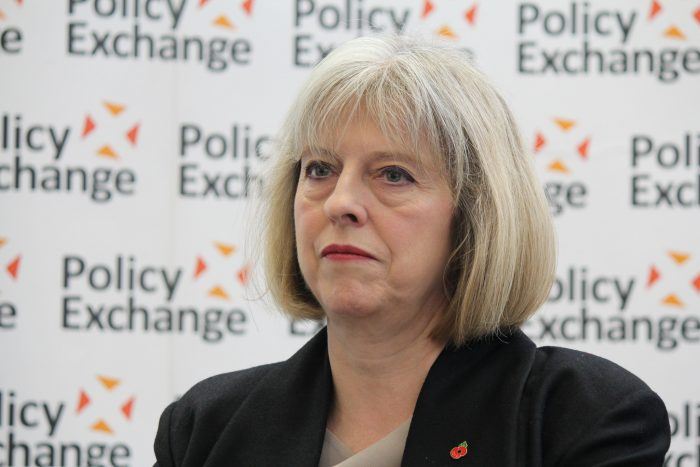When you look at British politics, or indeed politics almost anywhere in the world, you can see division through adherence to outmoded ideology, and petulant antagonistic disagreement on how to achieve exactly the same ends. All countries want the same thing: they want to be successful economically, safe, secure, and at peace. Who can possibly have a problem with that? Politicians, that’s who.
Brexit Disagreement
For months now, the deal for Britain’s exit from the European Union has seemed to be in a state of limbo. Like swans swimming, everything appears calm on the surface but under the water there is furious paddling.
Now, the European Union is run on a day-to-day basis by unelected bureaucrats. They are a pretty obnoxious bunch and the most odious of all is their chief negotiator in the Brexit talks, a certain Michel Barnier. In a speech the other week, he laid down some extra penalty clauses targeted at the so-called “transition” period when Britain leaves the Union. This caused a major argument. The good news is that he overstepped the mark and was slapped down by senior politicians from various countries.
This brief fracas could be the single one thing that changes everything because, essentially, both sides ultimately want the same thing.

Michel Barnier, European Chief Negotiator for the United Kingdom Exiting the European Union. Photo: DG EMPL.
Visit To Germany
The economic powerhouse that is the German nation is at the heart of the EU and its Chancellor, the formidable Angela Merkel, has always wanted to be the boss of us all, hence her enthusiasm for the Union. That said, her own dissatisfied countrymen gave her a bit of a kicking at their recent elections, and she is now clinging onto power by means of a coalition with another political party that she otherwise despises.
Meanwhile, enter – stage left – the British Prime Minister, the conflicted Theresa May, whose “wait-and-see” attitude to Brexit has infuriated everyone. She too has finally seen fit to shape up before she is booted out and arrived for a meeting with Frau Merkel, where we saw, for the first time, a softening of European attitudes. This is because something that we ordinary folk have always known has suddenly appeared to dawn on both official sides of the Brexit negotiations: economic success cuts both ways.
Importance of The German Car Industry
If Germany herself is the most successful powerhouse of the European continent, so the German car industry is the single most important component of that success. Look at the list: Mercedes-Benz, BMW, Audi, Volkswagen, Porsche. Impressive huh? These are some of the biggest, most successful car makers in the world and they are not happy.
All the talk so far has been about how badly the UK will fare when we leave the Union, especially if there is a failure to agree on trading terms (or a “hard” Brexit as it is being called). What the EU negotiators failed to realise when they played hardball at the negotiating table is that trade is a two-way street. The German car industry will suffer hugely in terms of exports. There is already talk of job losses and a slow down in production because those brands sell so well in Great Britain. Also, around a fifth of all componentry used in German car construction is made in the UK. In short, if we have to suffer the consequences of a failure to agree, so will they.
At the aforementioned meeting, Angela Merkel was thus much more conciliatory. I would suggest that behind this sudden softening of attitude are some strong words from high-ranking car industry bigwigs. Sort it out, in other words. The time for silly political wrangling and dogmatic posturing has passed. Politicians know that economics is all, and that is what ultimately will drive a mutually beneficial Brexit.
Geoff Maxted is a motoring writer, photographer, and author of our Letter From The UK series. Follow his work on Twitter: @DriveWrite
Theresa May photo via Policy Exchange.
Michel Barnier photo via DG EMPL.
from Automoblog.net http://ift.tt/2HCBOiq


No comments:
Post a Comment